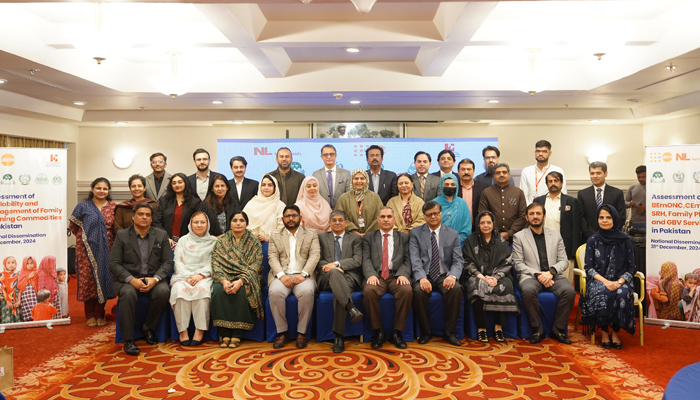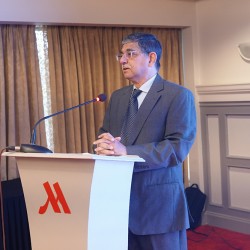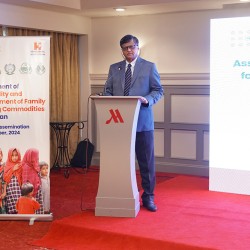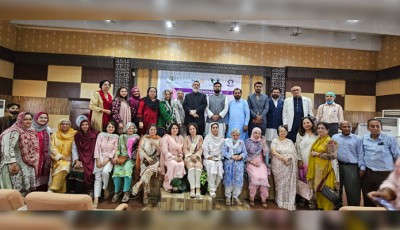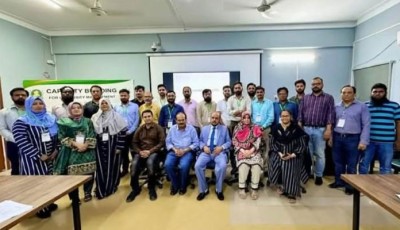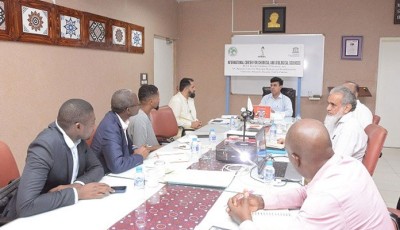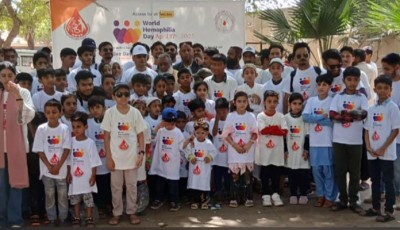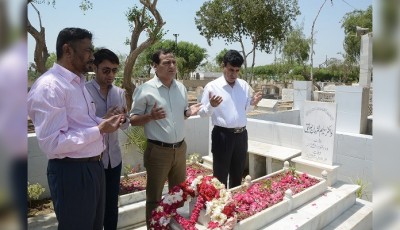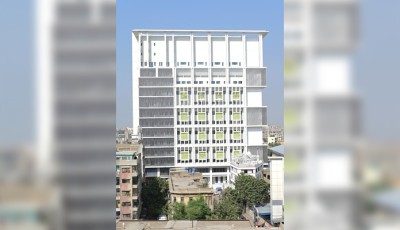Karachi: The Indus Hospital and Health Network (IHHN) hosted an event in which findings of two reports were shared. The first report focused on strengthening Emergency Obstetric and Newborn Care (EmONC) in health facilities, while the second report assessed the availability and management of family planning commodities in health and population welfare facilities in Pakistan.
The event aimed to shed light on crucial findings and pave the way forward for enhanced EmONC and family planning services in the country.
These findings are a culmination of months-long effort which saw IHHN partnering with the United Nations Population Fund (UNFPA), to evaluate EmONC services, and the provision and management of family planning commodities across Pakistan. To conduct these assessments efficiently, IHHN digitized UNFPA’s globally recognized assessment tools, enabling real-time data collection and updates through digital dashboards.
Dr. Jamil Ahmad Chaudhry, Program Specialist at UNFPA, delved into the purpose and objectives of undertaking the two assessments, highlighting the importance of strengthening health and population welfare facilities for delivering critical services for mothers and newborns, and ensuring access to commodities for safe birth spacing, setting the stage for a day of insightful discussions and impactful presentations.
He remarked: “The purpose of undertaking this exercise of assessing more than 460 facilities is to work with provincial governments and to help visualize the effort needed for Pakistan to meet its global commitments, for example, to increase the contraceptive prevalence rate in Pakistan from 34% to 60%.”
The government representatives appreciated the meticulously collected findings of the reports which can prove to be beneficial in future decision making.
As the event drew to a close, Dr Zafar Zaidi, Chief Executive Officer of IHHN, delivered closing remarks and extended a heartfelt vote of thanks to all attendees, speakers, and collaborators for their invaluable contributions to this essential dialogue.
Dr Zafar said: “Emergency Obstetric and Newborn Care (EmONC) is a cornerstone of maternal and child health. The ability to provide timely and effective care during childbirth is not just a medical necessity but a moral imperative. Strengthening EmONC services and ensuring safe birth spacing means that every birth is safe and that every mother and child have the best possible start in life.”
The event brought together an esteemed group of attendees, including senior government officials from the Health and Population Welfare Departments of each province, alongside high-ranking representatives from the federal government. Also in attendance were leading figures from the development sector, specializing in maternal health, family planning, and reproductive health. This diverse and experienced gathering ensured a robust and informed dialogue, fostering collaboration across sectors to address family planning challenges in Pakistan.
In 2019, Pakistan's MMR was 140 deaths per 100,000 live births, while the neonatal mortality rate was 39 deaths per 1,000 live births. Maternal and neonatal mortality rates are higher in rural areas compared to urban areas. Family planning remains a critical public health priority in the country. Pakistan had initially committed to increasing its Contraceptive Prevalence Rate (CPR) to 50% by 2020 and has renewed its pledge at the Nairobi Summit to achieve a CPR of 60% by 2030.
About the Indus Hospital and Health Network (IHHN):
Indus Hospital & Health Network (IHHN) has been dedicated to providing high-quality healthcare services across the entire spectrum of care, from community engagement to tertiary care. Anchored in the institutional vision of offering excellence in healthcare that is free for all, IHHN's mission is driven by the desire to please Allah Subhanahu Wa Ta’ala.
About IHHN’s Community Health Directorate:
The goal of the Community Health Directorate (CHD) – a part of the Indus Hospital and Health Network (IHHN) – is to ensure that all communities in Pakistan are provided with access to high quality care to support their overall wellbeing. CHD’s programmatic initiatives cover the continuum of healthcare through primary and secondary healthcare services. It integrates community outreach, family medicine, public health, and acute care to empower underserved communities, promote health-seeking behavior, and address Pakistan’s leading health and development challenges. CHD has interventions in 91 districts of Pakistan, and provides essential health services through hospitals, fixed facilities, container clinics, telehealth clinics, and mobile clinics.
